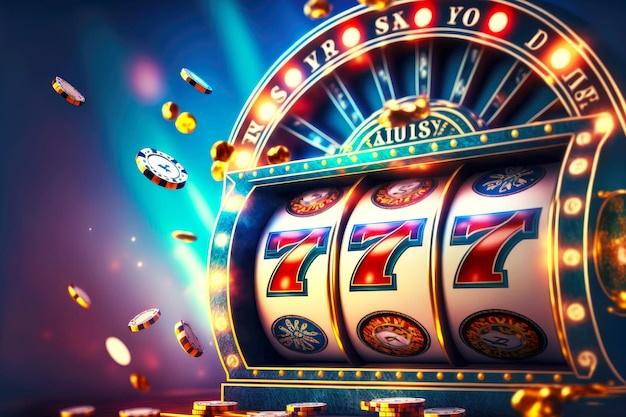
A slot is a narrow opening, as in a door or window. It may also refer to a position or assignment in a group, series, sequence, or hierarchy. The term may also be used in computing to refer to an allocated portion of resources such as memory or disk space. The word is derived from the Old Norse word slod, which means track or trail, and may refer to the track of a deer.
While many people believe that certain machines are “hot” or “cold,” the truth is that slots operate using random number generation technology to determine winning or losing spins. When you press the Play button or pull the handle, the machine sets a combination of numbers and then selects a single symbol from those combinations to stop on each reel. Each spin is completely independent of the previous one, so the outcome of a particular game is determined solely by chance and the timing of your inputs.
Modern video slot games often feature more than five pay lines that run horizontally, vertically, diagonally, and even in zig-zag patterns. Some even have wild symbols that can substitute for other symbols to create more winning combinations. In addition, many machines will display a jackpot amount and other information on the screen to help players decide what type of machine to choose.
In addition to the information displayed on the machine’s screen, there is a lit ‘candle’ above the slot that flashes in specific patterns for service needed, entry made, jackpot, jackpot won, and more. These lights are designed to make the slot experience more engaging for gamers and allow them to see what is happening on the machine without having to look down at their game result.
Some players will play two or more slot machines at a time in an attempt to improve their chances of hitting the jackpot. This is not a sound strategy, as the random number generator in each machine determines the result of each spin independently from the others. It is also not true that the rate at which you push the button or the amount of time between spins affects your odds of winning.
There are a lot of myths about slot machines that can lead to harmful habits. Many people who seek treatment for gambling addiction report that slot machines were the primary source of their problem. To avoid developing a gambling habit, try to set limits on how long you spend playing slots and take regular breaks.
A common myth is that slots payout more frequently at night. While it is true that some people win more at night than during the day, this is mostly due to the fact that more people play at night. If you want to increase your odds of winning, play on a machine with a high payback percentage and keep your losses to a minimum. Also, be sure to read the pay table before you begin playing so that you understand the different pay out amounts and what combinations can make you money.